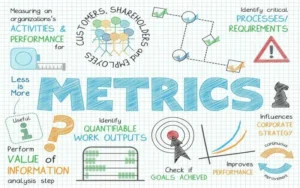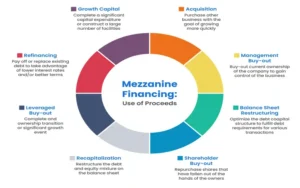What is market failure?
An inefficient distribution of commodities and services in a free market is called market failure in economics. The forces of supply and demand balance each other out in a perfectly functioning market, and a change in one side of the equation results in a price change that keeps the market in equilibrium. But in a market failure, this equilibrium is upset in some way.
When markets fail, individual incentives for rational behavior do not result in rational group outcomes. Put differently, every person makes the right choice for himself, but those choices end up being incorrect for the group as a whole.
Understanding Market Failure
When members of a group distribute resources inefficiently and come out worse off than they would have if they had not behaved in their reasonable self-interest, this is referred to as a market failure. When there is a market failure, everyone in the group pays too much or gains too little. Under conditions of market failure, the resulting economic conditions are typically not economically efficient and diverge from what economists typically view as desirable.
Despite what the term suggests, market failures are not limited to flaws in the market economy; they can also occur in government operations. Particular interest organizations’ rent-seeking is one notable instance. Special interest groups stand to gain from imposing minor taxes, like tariffs, on the general public. The collective group suffers more than it would have if there had been no lobbying when each little group imposes its costs.
Not all negative results of market activity are indicative of a failed market. Furthermore, private market players could be able to resolve the issue, even if government action is frequently necessary to correct the imbalances that underlie a market failure. However, not all market failures can be resolved, even with careful regulation or increased public knowledge.
Reasons Why Markets Fail
A wide range of imbalances can impact the markets’ equilibrium. The common causes of market failure are summarized in the list below.
- Externalities: A good or service has an externality when its use helps or hurts a third party. One example of a negative externality that can hurt people and groups is the pollution that comes from making some things. It’s possible for the market to fail because of the damage that bad effects cause to other things.
- Market failure can also happen when some people in the market don’t have access to enough knowledge. If the buyer or seller doesn’t have access to the information that determines the price, they might be ready to pay too much or too little for a good or service, which would throw off the balance of the market.
- Controlling the market: If one person or group controls a market too much, prices can become unfair and the market can fail.
It is possible for one or a small group of sellers in a monopoly or oligopoly to change prices. Others, called monopsony or oligopsony, are better off. In either case, the market could fail because supply and demand are no longer in balance. - For example, public goods don’t follow the rules of supply and demand that make free markets work. This is an example of a market failure. Public goods and services can’t be kept from anyone. For example, once a street light is made, everyone can use it; the person who made it can’t just let paid customers use it. Also, public things are nonrival, which means that one person’s use does not stop other people from using them. For these reasons, the private sector doesn’t have much of a reason to make public goods. This means that the market fails, and the government generally has to provide these goods or help make them.
Remedy for Market Failure
There are numerous ways to address market failure. These could be voluntary group action, imposed solutions by the government, or private sector solutions.
Solutions from the private market: In some instances, the private market itself may answer a market failure. For instance, asymmetrical information could be resolved by providing market players with information regarding securities risk through intermediaries or rating agencies like Moody’s and Standard & Poor’s. For electronics, Underwriters Laboratories LLC handles the same function. Tort cases that raise the polluter’s opportunity costs can be used to address negative externalities like pollution. Radio shows deftly addressed the non-excludable issue by combining free programming with recurring paid commercials.8.
Solutions imposed by the government: Governments can respond to a market failure by passing laws and taking other actions when the market cannot provide the remedy. For instance, the government may make exceptions for less-skilled workers if companies hire an excessive number of low-skilled workers following a raise in the minimum wage. As potential remedies, governments may also apply taxes and subsidies. Subsidies have the potential to promote actions that have advantageous externalities. Taxation, in the meantime, can aid in reducing lousy conduct. For instance, taxing tobacco products can raise their cost of use, which would make smoking more expensive.
Solutions through collective action: Although the government may better develop legal, tax, and regulatory solutions, market failures can also be resolved through private collective activity. To avoid a market collapse due to the tragedy of the commons, parties can privately decide to set consumption limits and enforce regulations among themselves.3. To provide services that might otherwise go unmet in a pure market, producers and consumers can join forces to form co-ops. For example, a cooperative can provide rural homes with electric power or operate a refrigerated storage facility, allowing a group of dairy farmers to chill their milk efficiently.
Which Kinds of Market Failures Are Common?
Market failures can take several forms, such as insufficient information, monopolies, negative externalities, inefficiencies in production and allocation, and inequality.
How Can the Failure of the Market Be Fixed?
Government intervention is the primary tool available for correcting market failure. To do this, the government must enact laws governing antitrust practices and implement various pricing strategies, including taxes and subsidies.
A Failure of the Market for Poverty?
It is believed that market failure leads to poverty. When a recession strikes, more people become impoverished because workers lose their jobs or cut back on their hours, which leaves them with little or no money. When wealth is not dispersed equitably across society, inequality—a component of market failure—can eventually result in poverty. Government intervention can address this, such as raising taxes on the wealthy or implementing subsidies for those living below the poverty line.
The Final Word
Market failure is the term used to describe the inefficient distribution of resources in a free market that results from people acting in their rational self-interest yet producing less-than-ideal economic results. These economic inefficiencies can arise in implicit markets, like trading favors during the legislative process, or in explicit markets, like those where goods and services are exchanged.
Incomplete information, concentrated market power, negative externalities, inefficiencies in production and allocation, and inequality are the root causes of market failures. Market failures may be resolved by government action, such as taxes and subsidies; alternative remedies may come from the private sector or via group efforts.
Conclusion
- Market failure is when people acting in their interests (logical self-interest) leads to a less-than-ideal result.
- Market failure can happen in both open and closed markets. Open markets include buying and selling goods and services directly, while closed markets include elections and voting.
- Fixing market mistakes might be possible through private market solutions, government-imposed solutions, or actions everyone takes on their own.


































